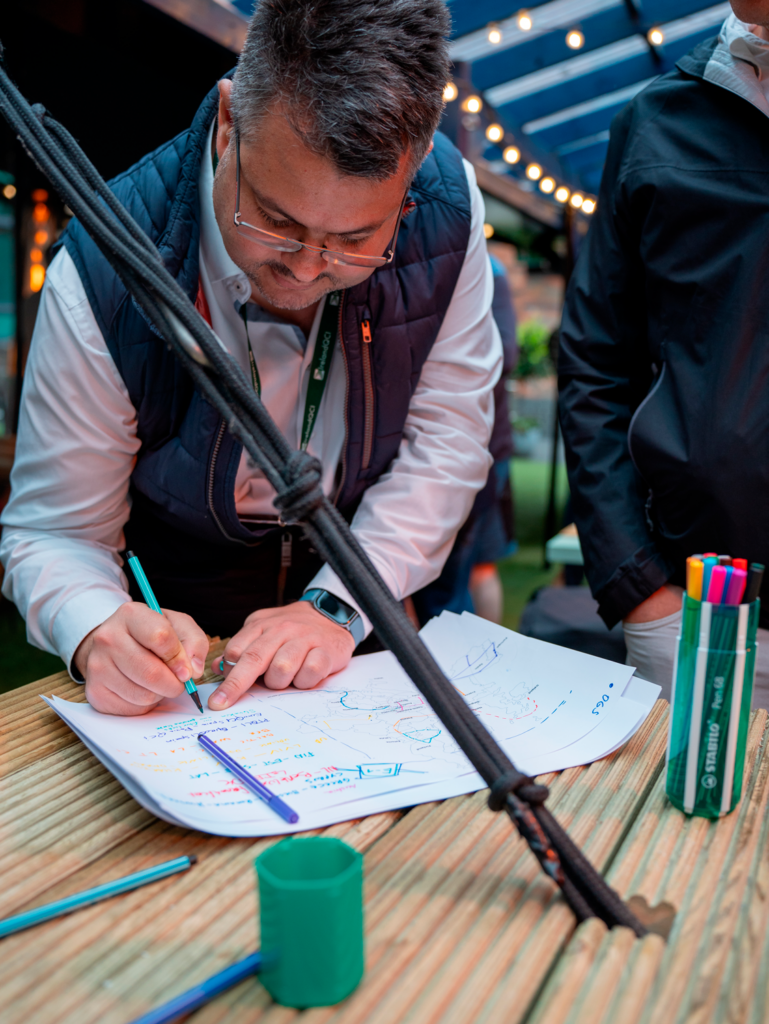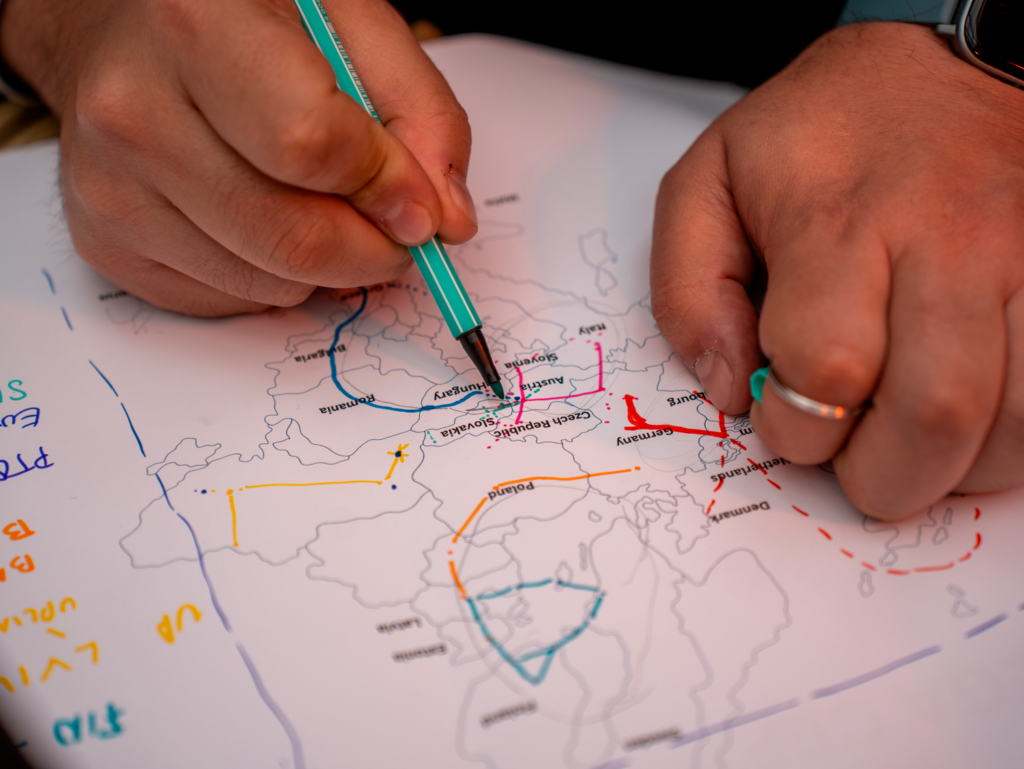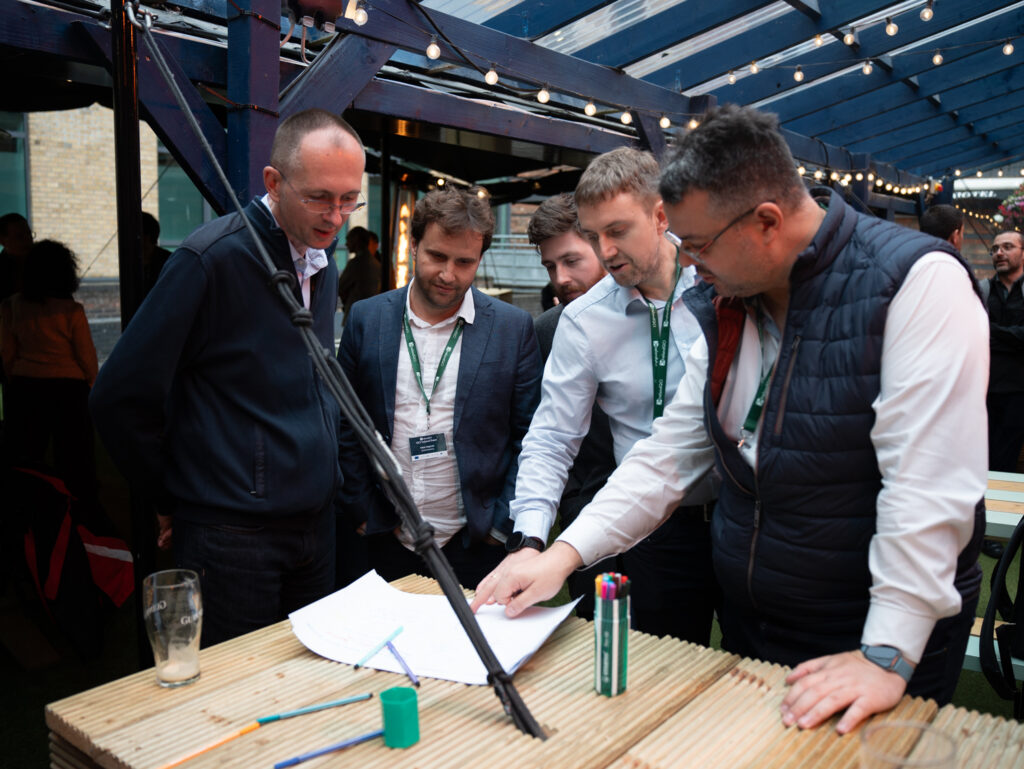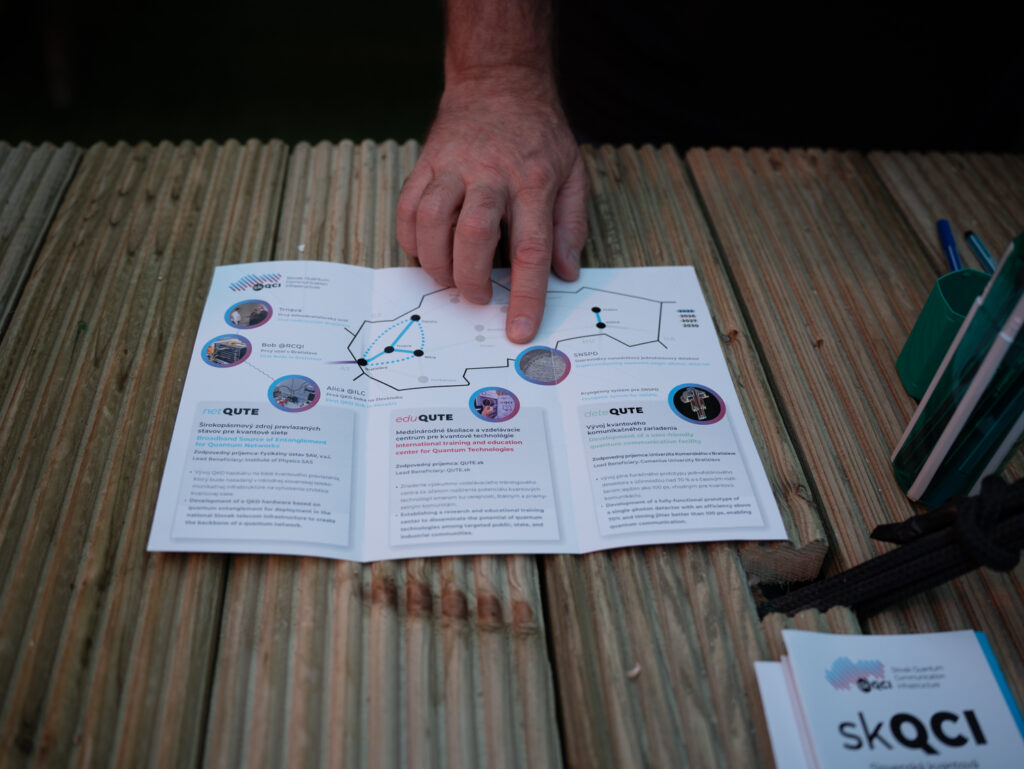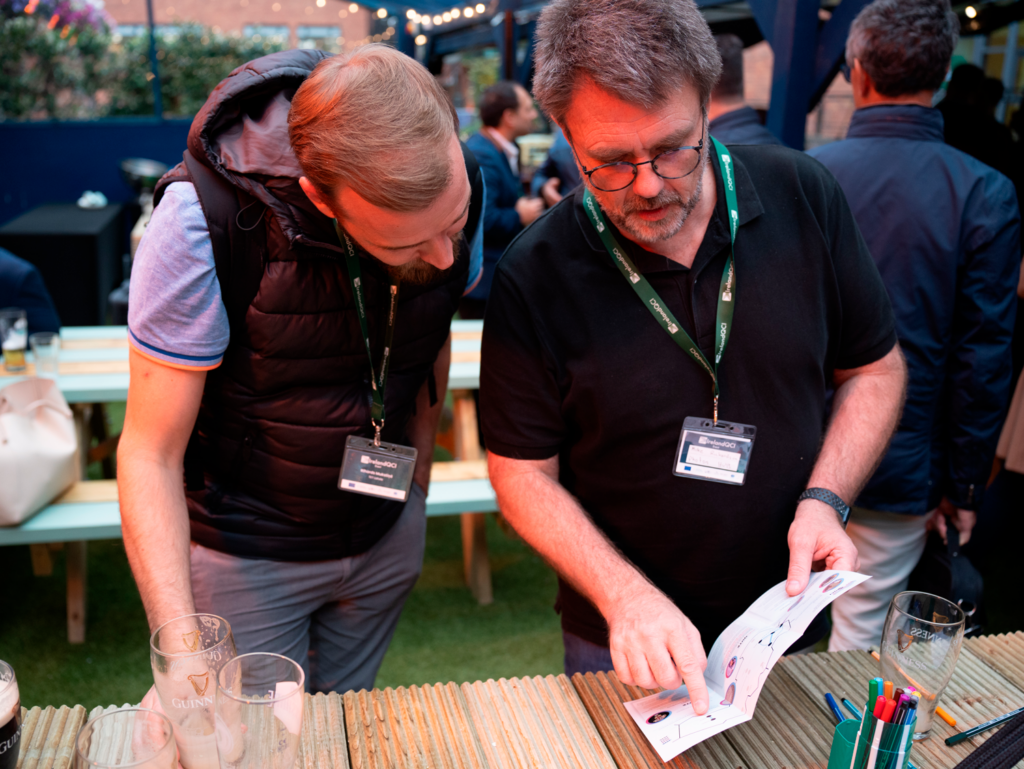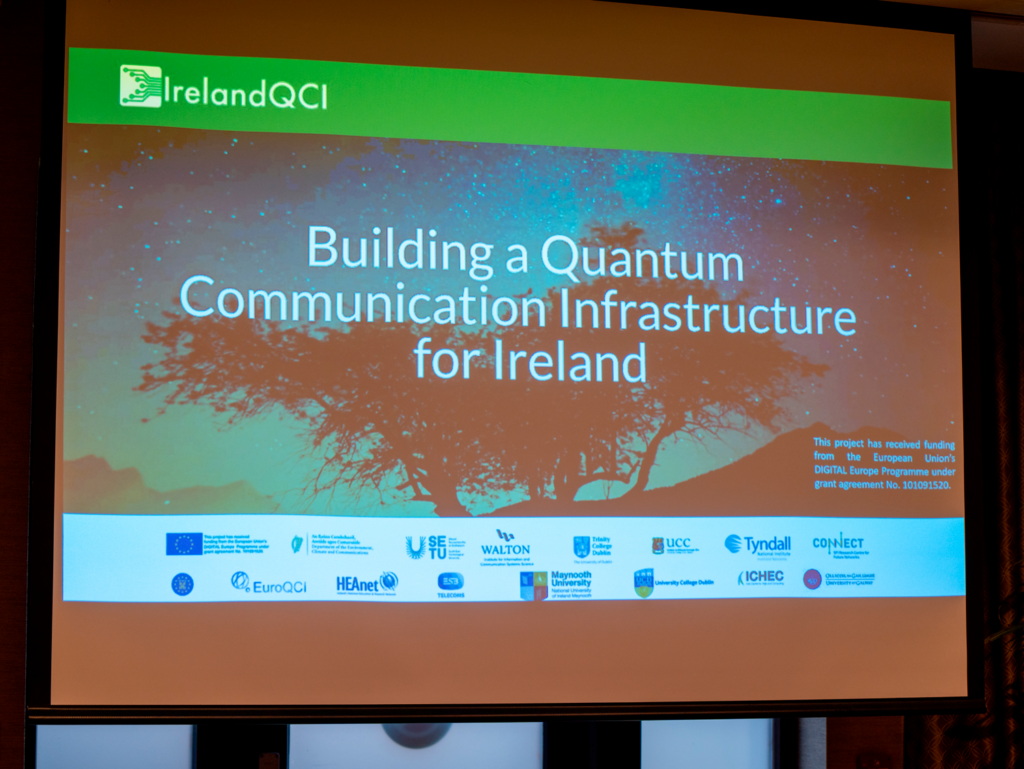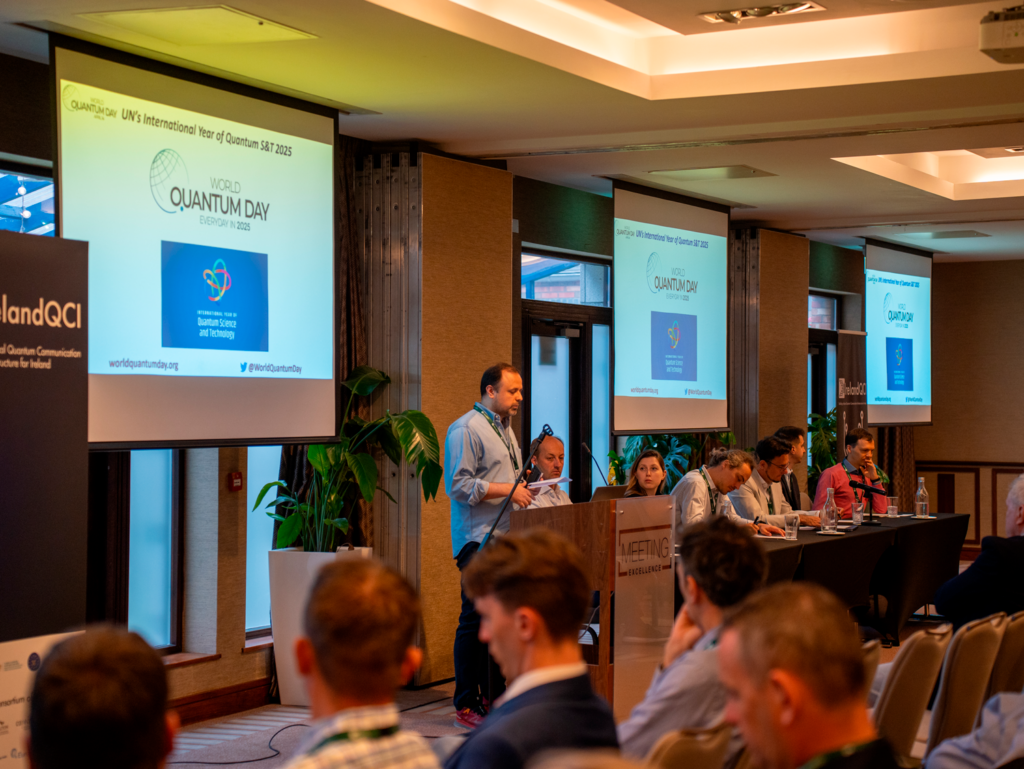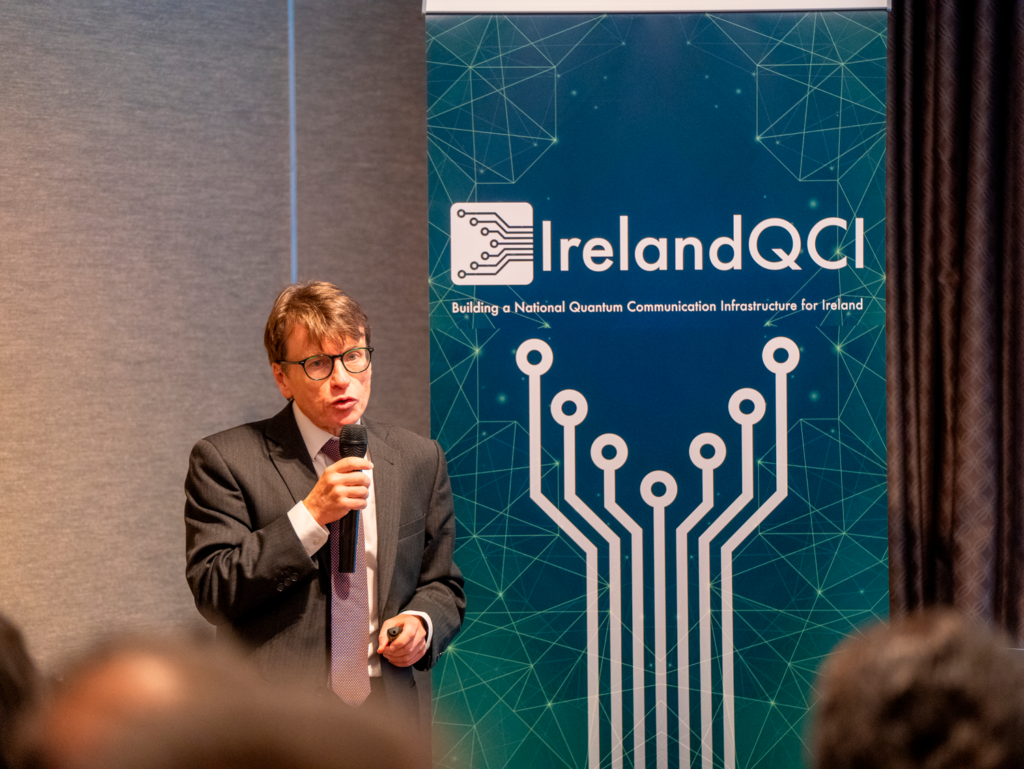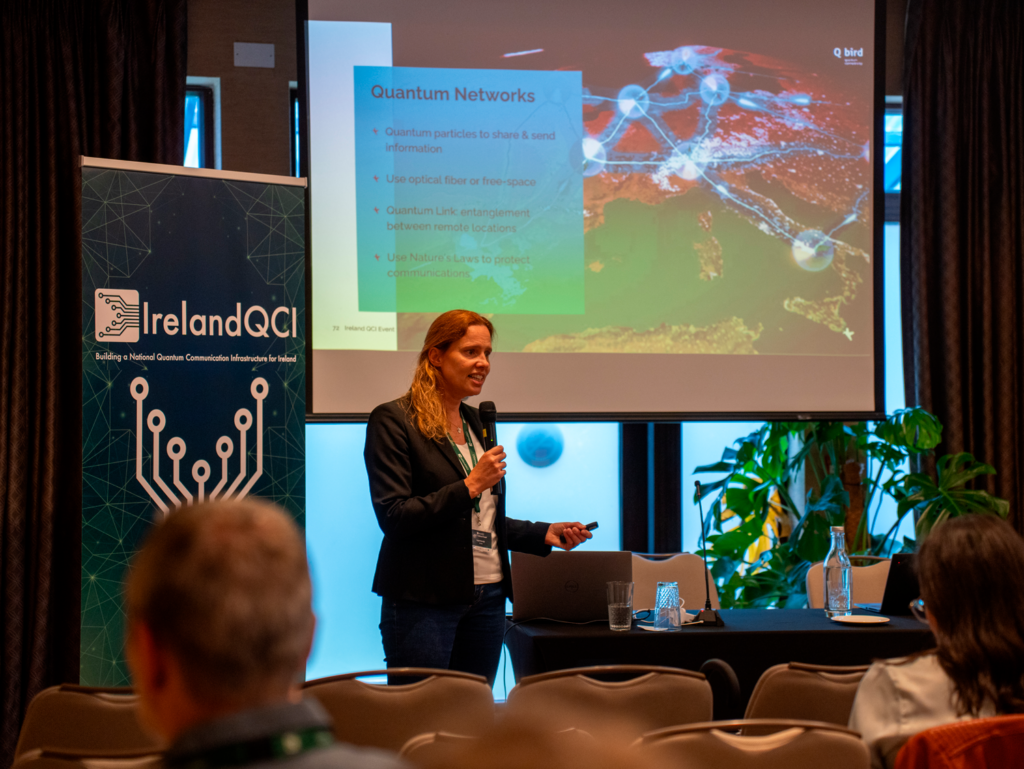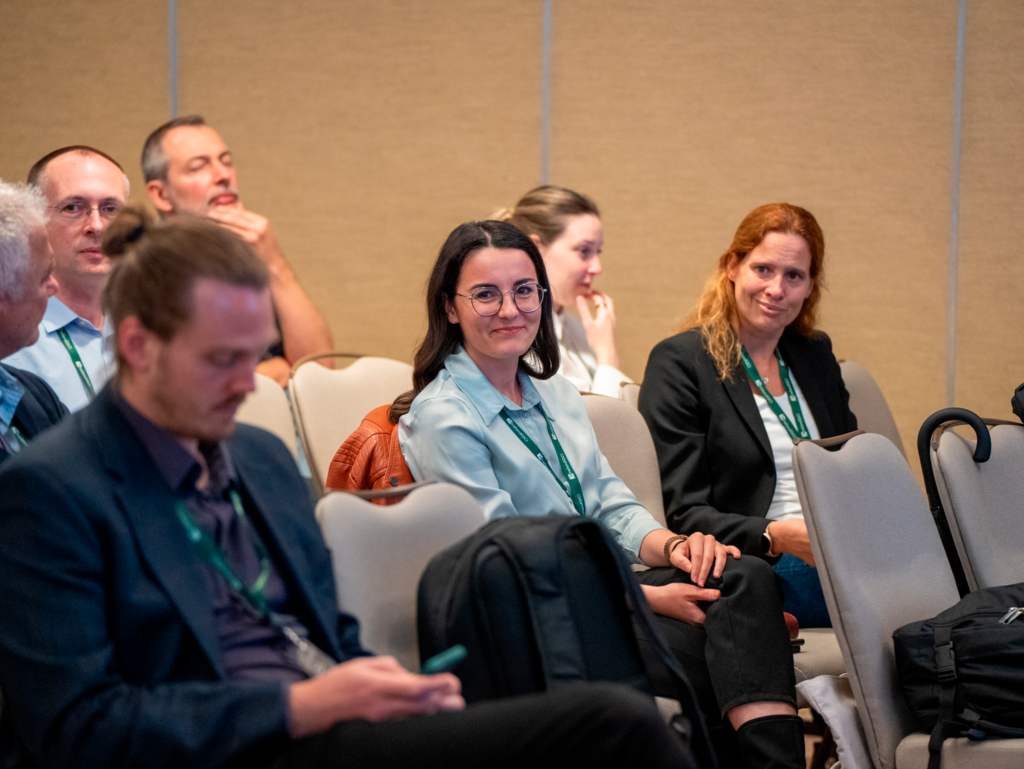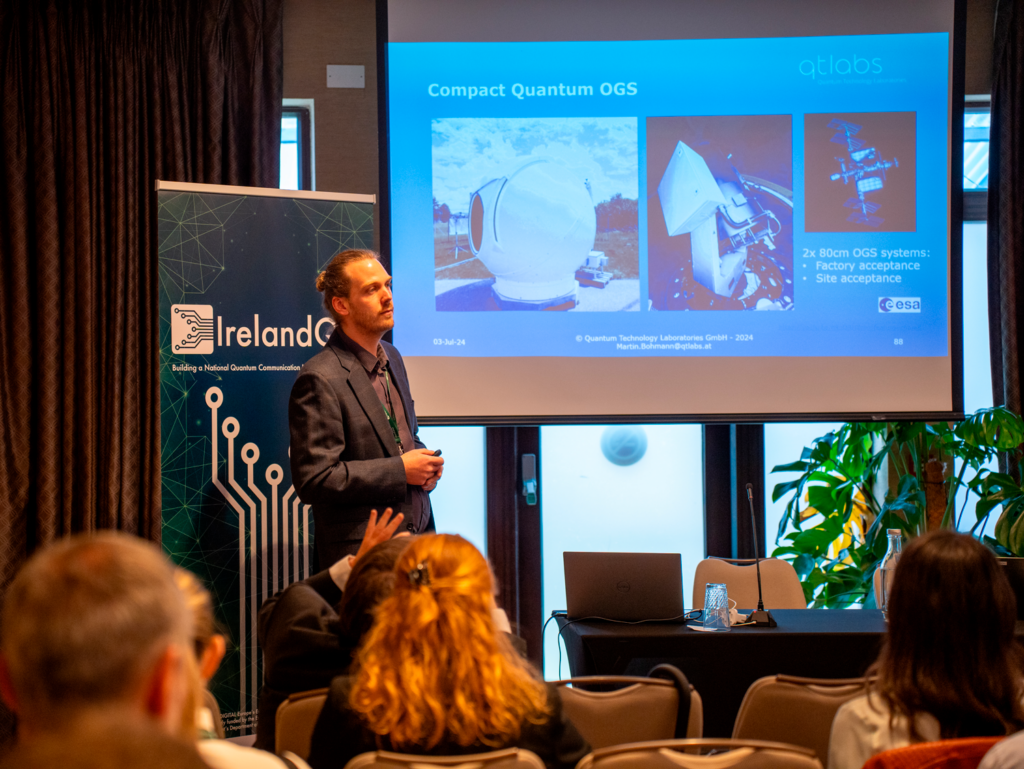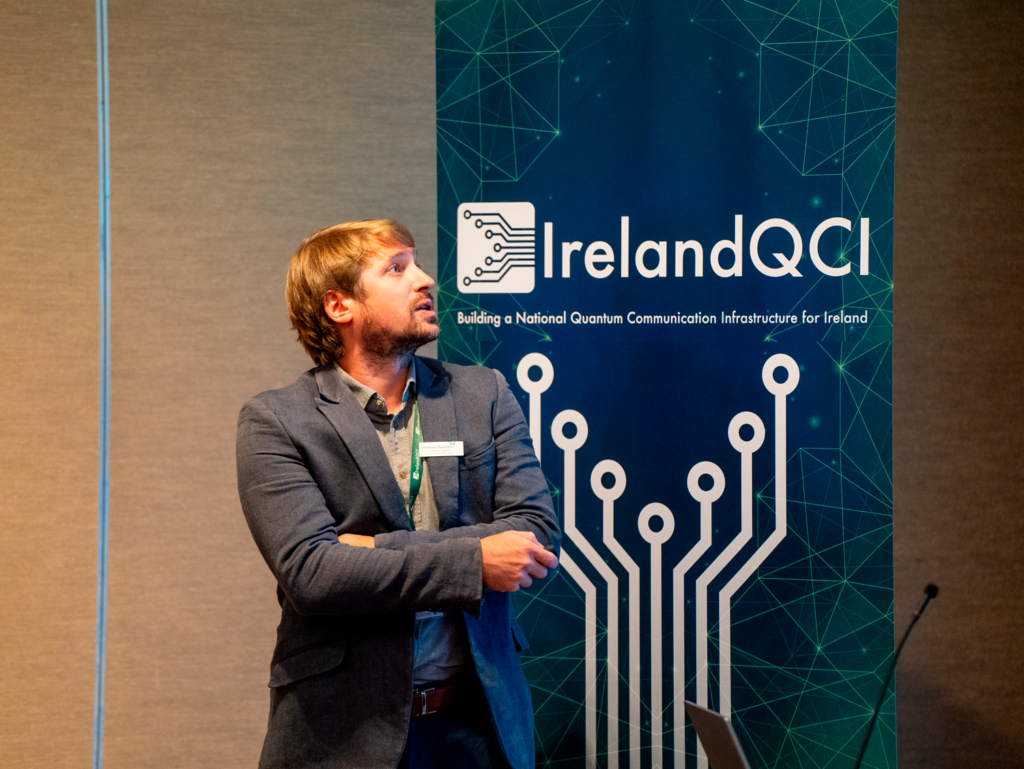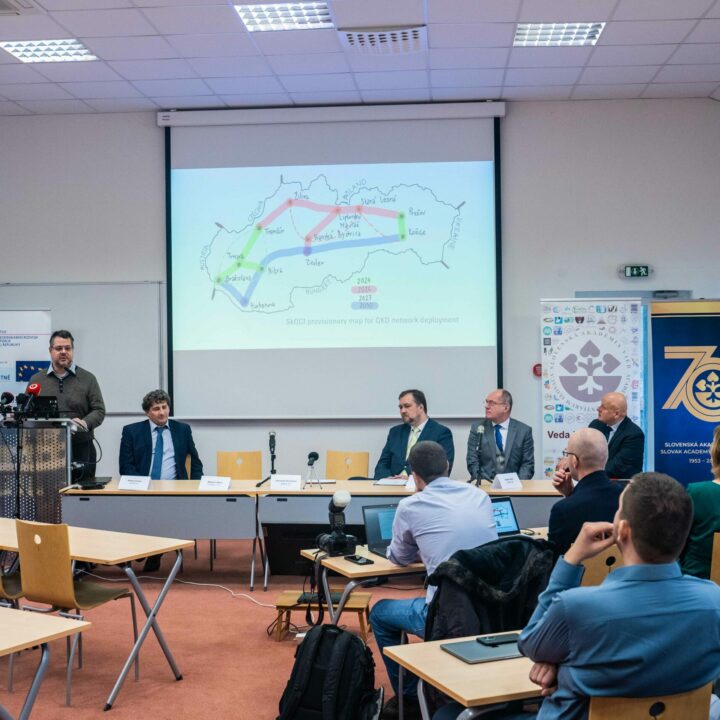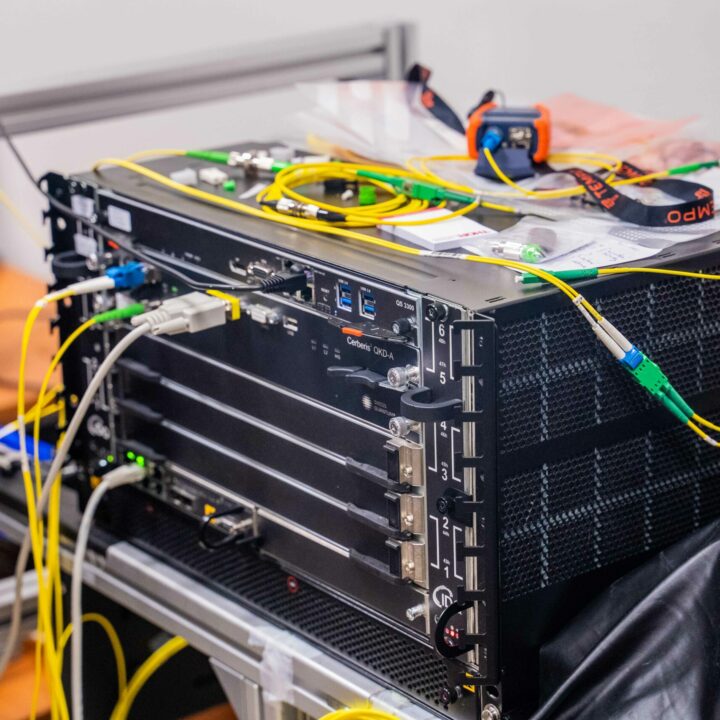Highlights from the Quantum Communication Infrastructure (QCI)Conference in Dublin
The recent QCI Ireland conference held from July 1–3, 2024 in Dublin offered a rich array of discussions and presentations from specialists across Europe, aiming to discuss and advance quantum communication technologies. Over the three days, attendees were treated to a series of engaging workshops, keynote speeches, and panel discussions. The event highlighted the rapidly evolving field of quantum communication and its implications for secure data transmission.
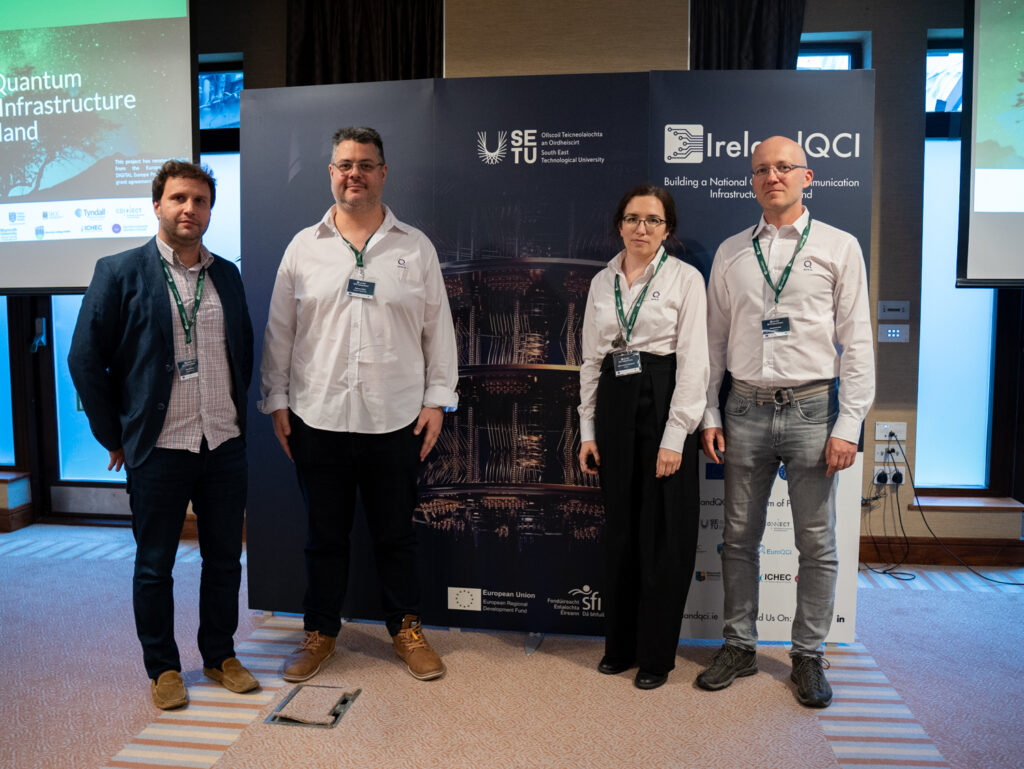
Day 1: Exclusive Petrus Community Workshop
The conference kicked off with an exclusive workshop organized by the Petrus community, which is integral to the EuroQCI initiative. This session was particularly notable for its in-depth focus on the challenges and advancements in quantum communication infrastructure. The closed nature of this workshop allowed for candid discussions and detailed presentations on the technical aspects of quantum key distribution (QKD) and its integration into existing communication networks. This set a collaborative tone for the rest of the conference, fostering a spirit of openness and innovation.
Several leading QKD providers took the stage to present their latest solutions and technologies. These presentations offered a glimpse into the cutting-edge developments that are shaping the future of secure communication.
- ID Quantique showcased their advanced quantum key distribution systems, emphasizing their capabilities in achieving high-speed data transmission while maintaining robust security measures. Their technology’s ability to integrate seamlessly with existing classical networks was particularly noteworthy.
- Toshiba demonstrated their innovative approach to quantum communication, focusing on their developments in quantum-secure network protocols. Their solutions promise to enhance the security of data transmissions across various platforms, addressing some of the pressing needs in cybersecurity.
- Single Quantum presented their advancements in single-photon detection technologies, crucial for improving the accuracy and reliability of quantum key distribution. Their work aims to push the boundaries of what is currently possible in quantum communications.
- Quantum Industries highlighted their contributions to the development of quantum communication hardware, including components essential for building a secure quantum network infrastructure. Their solutions are designed to support the scalability and flexibility required for future quantum networks.
Use Cases Workshop and Engaging Discussions
One workshop delved into various practical use cases for quantum communication technologies and provided a platform for discussing real-world applications, including secure communication for government agencies, financial institutions, healthcare providers, and the military. The discussions in each group were rich and varied, showcasing how quantum communication can address specific challenges in different sectors and countries to enhance data security.
Inspiring Workshop on Education and Training
Another inspiring workshop focused on the role of education and training in advancing the quantum communication field. This session emphasized the importance of developing a skilled workforce capable of tackling the complex challenges posed by quantum technologies. Discussions revolved around creating educational programs and training initiatives that align with the needs of the quantum communication industry, ensuring a steady pipeline of talent for future advancements.
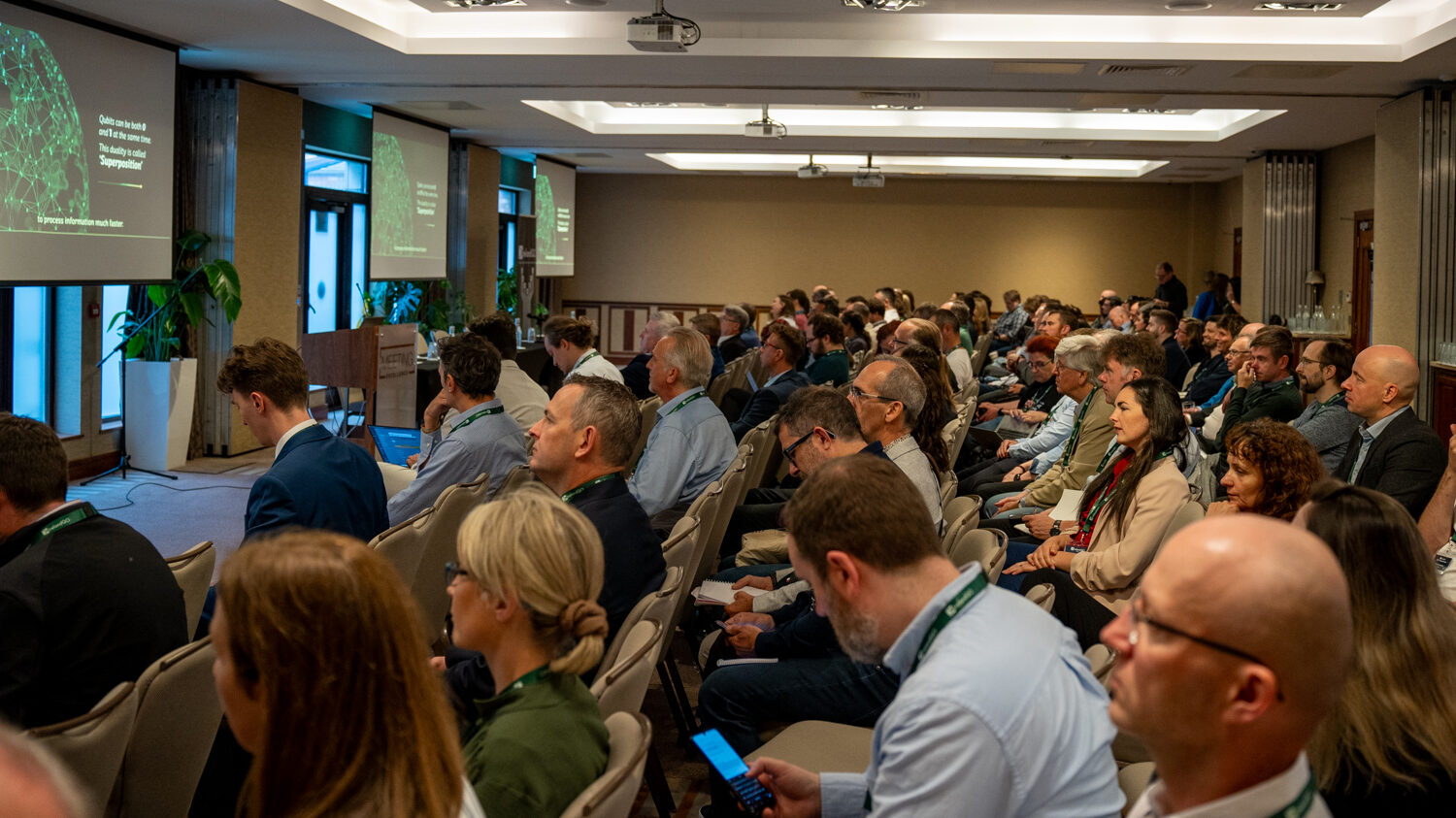
Day 2-3: Insights from Leading Experts
The second day of the conference continued to build on the momentum of the previous day, with a series of insightful talks and discussions on critical topics:
- Strategic Directions: Jesse Robbers, a key figure in Quantum Delta NL, provided insights into the advancements and strategic directions of the quantum communications ecosystem in the Netherlands. His discussion emphasized the importance of international collaboration and the sharing of best practices to accelerate the deployment of secure quantum networks.
- Standards and Regulations: Sebastian Ramacher’s presentation was particularly compelling, focusing on the standards and regulatory frameworks necessary for the widespread adoption of quantum communication technologies. He underscored the critical need for robust security protocols to protect data integrity and privacy in a quantum-enabled world.
Conference Highlights: Ministerial Insights and Future Visions
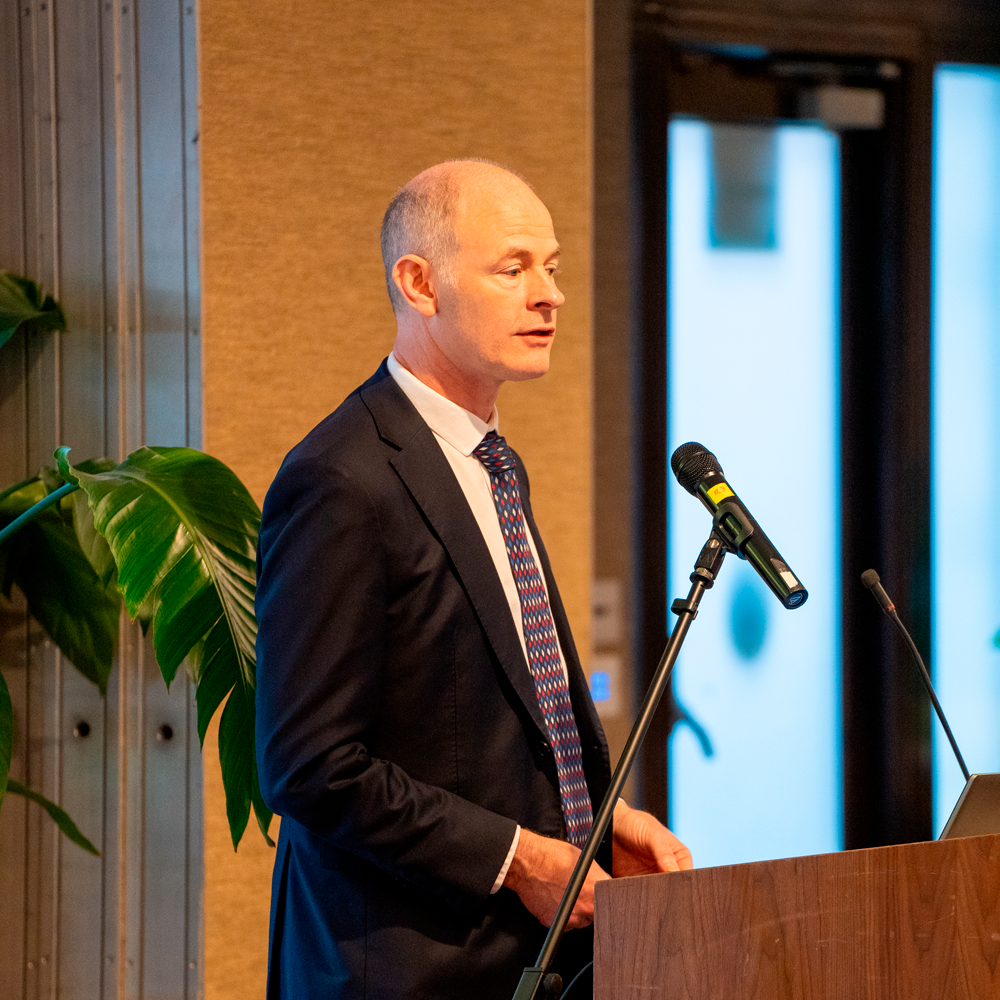
One of the most significant highlights of the conference was the address by Ossian Smyth, Minister of State at the Department of the Environment, Climate, and Communications. Smyth’s address reinforced the Irish government’s commitment to supporting the QCI initiative. He praised the collaborative efforts between Ireland and the European Union, emphasizing the strategic importance of secure quantum communication networks for national and continental security.
Following this, Jiri Vala’s presentation provided a visionary perspective on the future of quantum communication. His talk, “Quantum 2030,” offered a forward-looking view of how quantum technologies are expected to evolve and impact various sectors over the next decade. Vala’s insights into future applications and the potential societal benefits of quantum communication were both inspiring and thought-provoking.
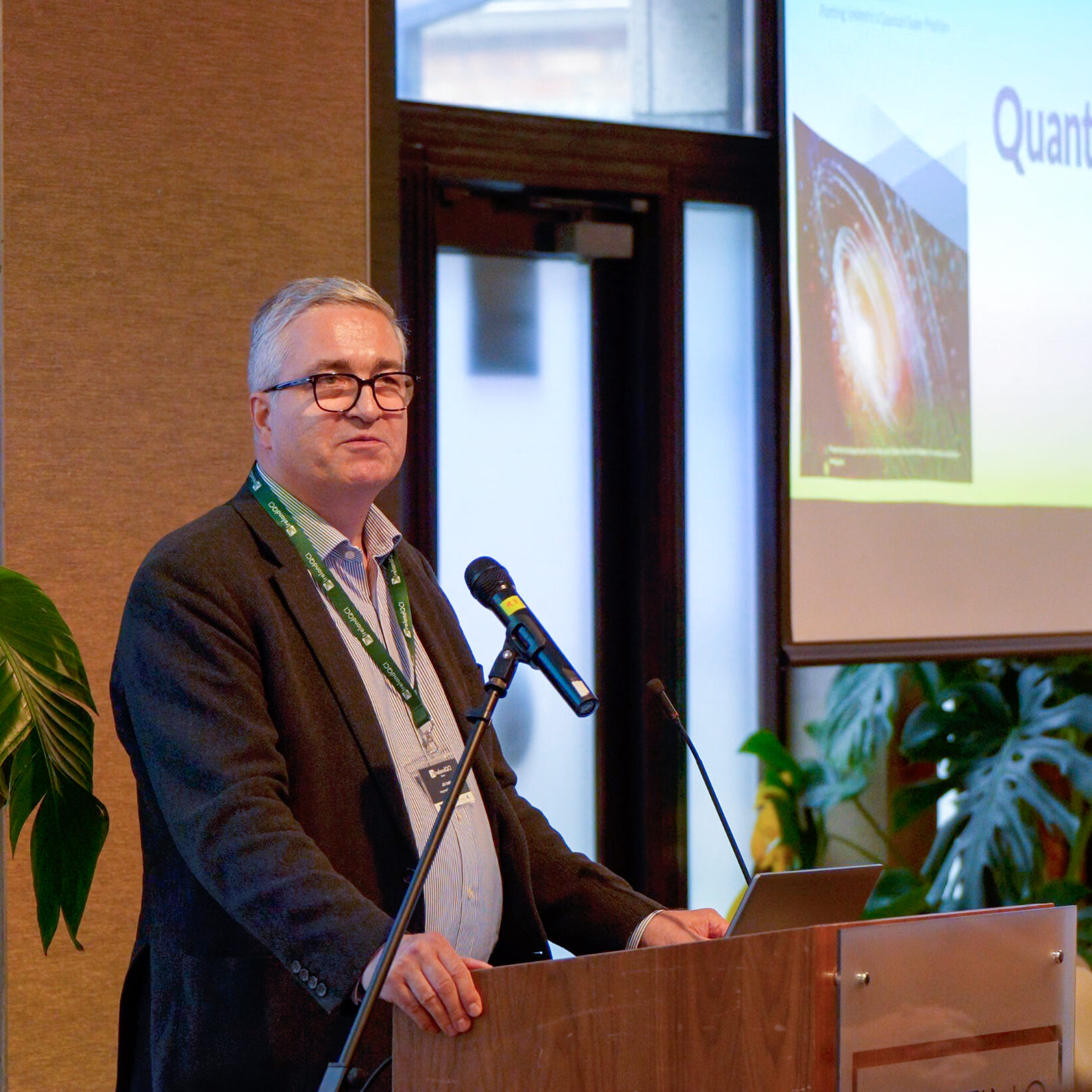
Conclusion
The three-day QCI conference in Dublin proved to be a dynamic and informative event, with significant contributions from leading experts and practitioners in the field discussing the future of quantum communications. From the exclusive Petrus workshop and the QKD provider presentations to the in-depth discussions and future visions, the conference showcased the rapid advancements in quantum communication and the collaborative efforts driving this exciting field forward.
